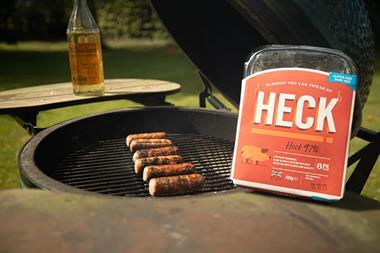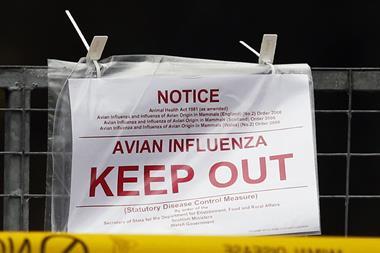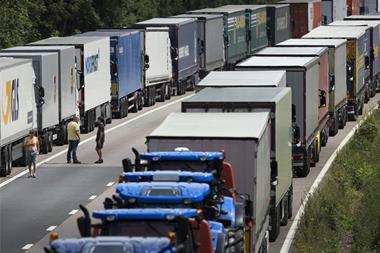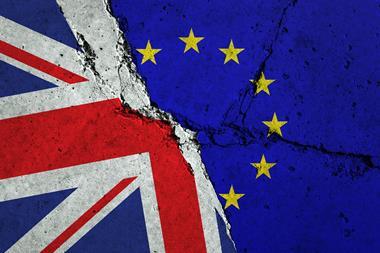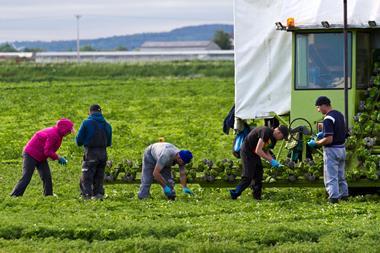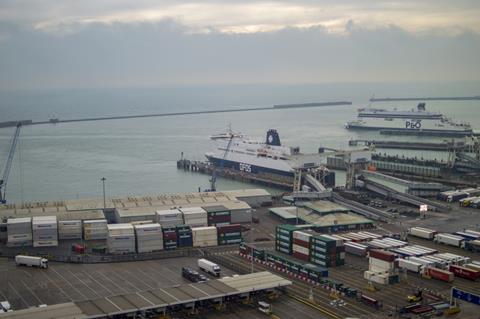
Diverging views have emerged among Britain’s food producers over a possible postponement of the planned July start of physical checks on imports from the European Union.
Speculation is growing that the government will put back the implementation of the checks, after Boris Johnson last week hinted a delay was likely.
Speaking during an official visit to India, the prime minister said he was “generally in favour of minimal friction at all junctures between the UK and the EU”, which has been checking imports from Britain since early 2021.
The UK planned reciprocal post-Brexit checks last year but has postponed implementation three times, though some largely paper and IT-based controls were put in place in January.
Although environment secretary George Eustice said last month those controls would be expanded as planned in July, the government has since gone on to hint several times of another delay as the Russian invasion of Ukraine fuelled further food price spikes and sharpened worries about possible shortages after more than a year of rising inflation.
“We’re hearing stronger and stronger hints that they [the checks] will be delayed”, said Michael Haverty, senior research consultant with farming consultancy The Andersons Centre.
While food producers were getting ready, “as things stand” for the July deadline, the sector had been forced to grapple with “several rumours of delays” while awaiting ”assurances from government that an announcement will be made shortly on whether or not a further delay will happen”, added Nick Allen, CEO of the British meat Processors Association.
And the lack of certainty, according to Richard Harrow, CEO of the British Frozen Food Federation, had led to anger and confusion.
Efra Committee slams government response to on-farm labour crisis
“Our members have spent money preparing for new rules which have been delayed because the government has failed in its own preparation,” he said. “This constant moving the goalposts is putting needless pressure on food businesses that are already dealing with numerous crises in staffing, supply, inflation and energy costs.”
Some industry representatives welcomed the suggested postponement on the grounds it would help ensure food supplies to the UK, which sources around a quarter of what it consumes from the EU. However, others said any new delay would sustain an unfair advantage to EU-based competitors who can export to the UK without facing the same checks on goods going the other way.
Shane Brennan, CEO of the Cold Chain Federation, suggested the continued lack of checks was contributing to “a rank unfairness between the cost and uncertainty facing our food exporters and those EU-based businesses importing into UK”.
British Poultry Council CEO Richard Griffiths agreed, adding the “imbalanced controls” were “jeopardising British competitiveness”, as rivals based in the EU had “enjoyed frictionless trade for over a year” with the UK.
“The longer we wait for the introduction of full controls, the more entrenched problems become. Delaying them for a fourth time risks normalising unfair trade with our largest trading partner,” Griffiths said.
According to Haverty, the imbalance caused “quite a bit of concern in industry that the playing field is not level in terms of imports from the EU coming in relatively unhindered whilst UK exporters are facing the full raft of EU border control regulation”.
Andrew Opie, director for food and sustainability at the British Retail Consortium, said the UK-side border controls should go ahead as planned.
“Retailers are ultimately ready for the implementation of checks in July and recognise that July is the most opportune time to introduce these checks, as fresh and perishable food imports are at the lowest”, he said.
Haulier IT meltdown adds to growing delays at Dover
“Retailers have been working with their European suppliers for many months to help prepare,” Opie added.
“A lot of resource has already been expended to prepare for the introduction of checks including work done by the Civil Service, infrastructure put in place by UK ports and operational preparations by British companies,” said the BMPA’s Nick Allen.
But with world food prices rising and consumer inflation already at a three-decade high in the UK, another delay “would be the right thing to do” for the meantime, according to the CCF’s Brennan. He said he feared “the impact of additional cost and uncertainty for our imports will be felt across the UK food supply chain if the checks go ahead”.
His comments were echoed by Lee Holdstock, trade relations manager at The Soil Association, who said “a further postponement to port checks [would] provide the organic industry with more time to explore alternative trade routes”.
Ben Robinson, head of purchasing at The Fine Cheese Co, a Bath-based importer and exporter, said if the UK-side checks were to be imposed as planned in July there would be “severe delays at the border”.
“My fingers are crossed that this gets pushed back, hopefully into 2023,” Robinson said, as a postponement “would save costs and basically keep the goods moving”.







